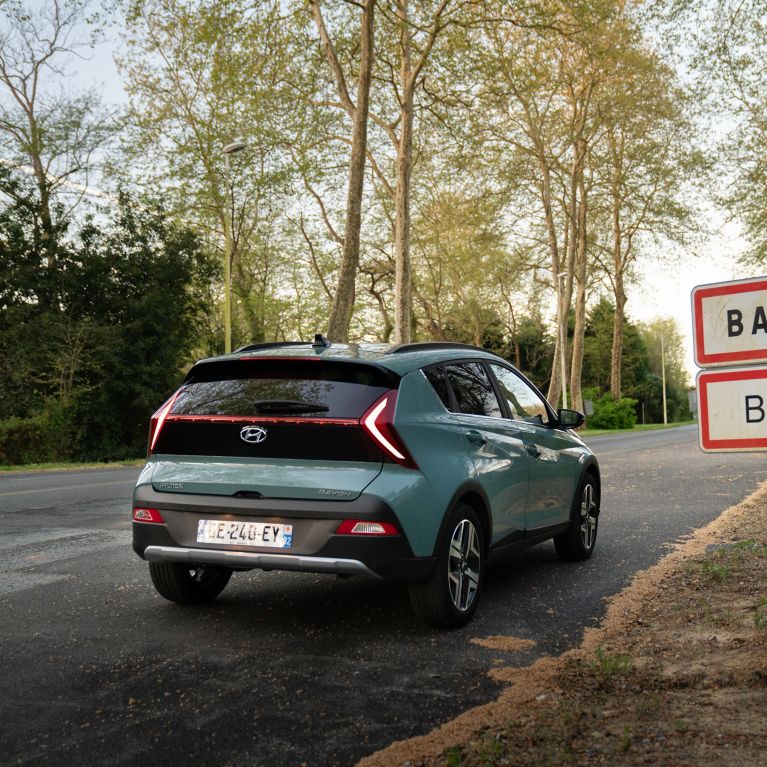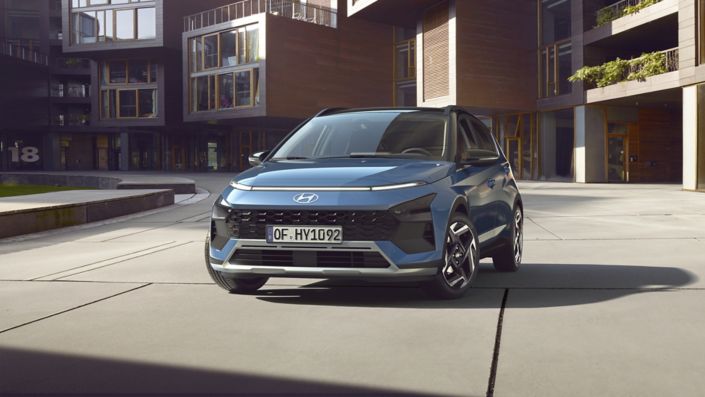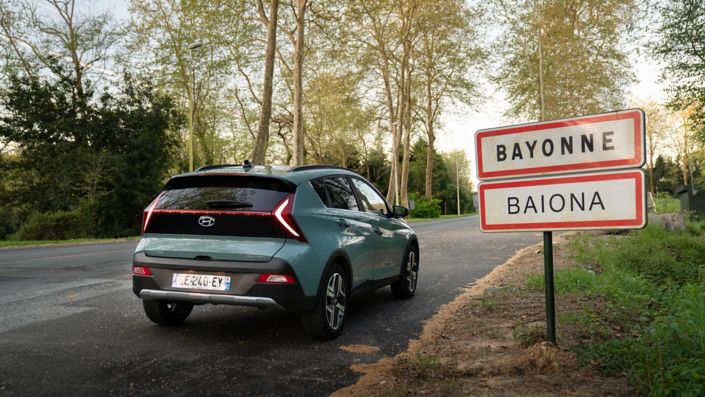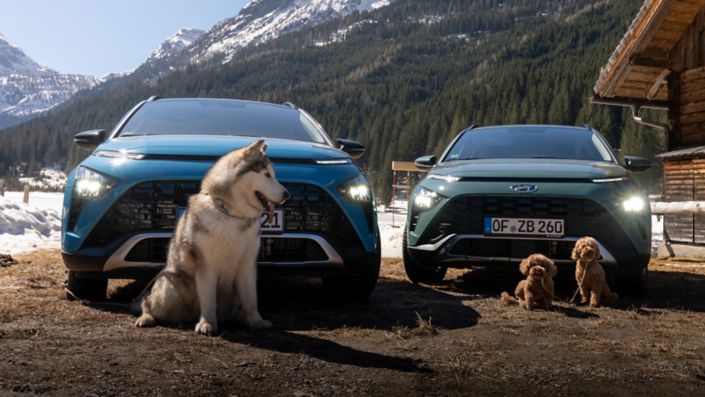Hyundai Motor’s SUV family share many similar traits. Each model sports a stylish body type that is particularly popular in Europe, while at the same time offering customers electrified motor options. However, each model shares one common theme: every Hyundai SUV takes its name from an international travel destination.
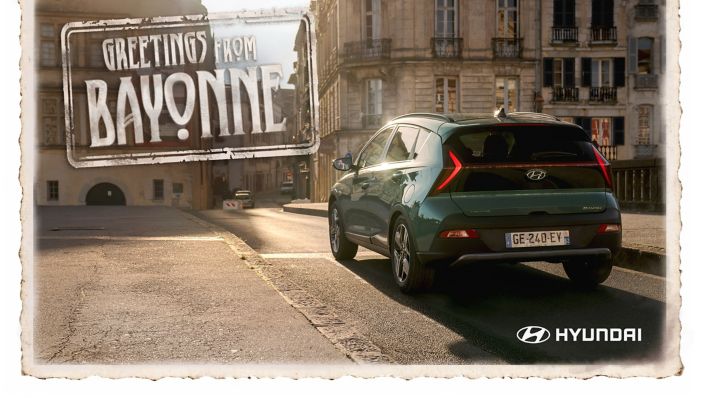
Bienvenue à Bayonne
Regarded as one of the most beautiful cities in southwest France, Bayonne is the capital of the French Basque Country. Just like the rivers Adour and Nive converge within the city, the waterside municipality blends the charms of the region’s cultures. Visitors can experience this at Bayonne’s historical sites, art museums, riverfront restaurants, and lively festivals.
The city centre is a web of narrow cobbled streets lined with half-timbered buildings with colourful shutters, terrace cafés, and open-air markets. The Hyundai BAYON was specifically designed and produced for Europe, so the model is apt at navigating its tight roads and demonstrated expert handling in its cities. As the most compact member of Hyundai’s SUV family, BAYON proves that SUVs do not have to be motorway giants. On top of this, its high seating position lets customers see the world from new heights.
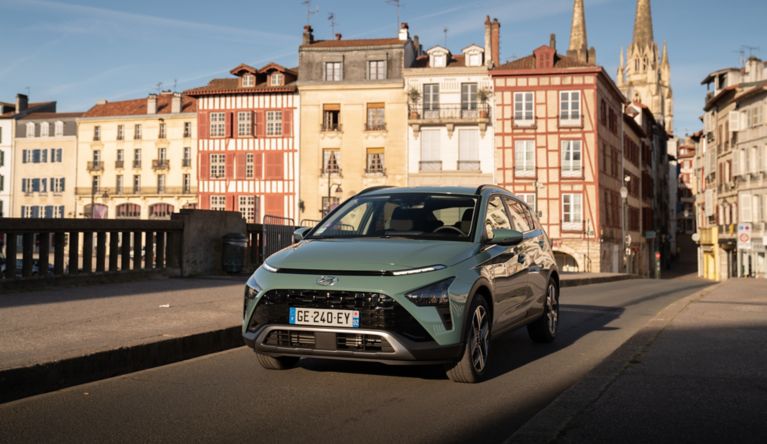
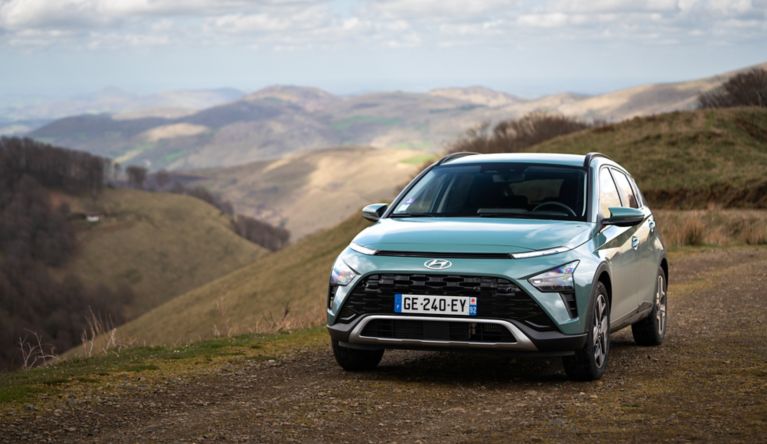
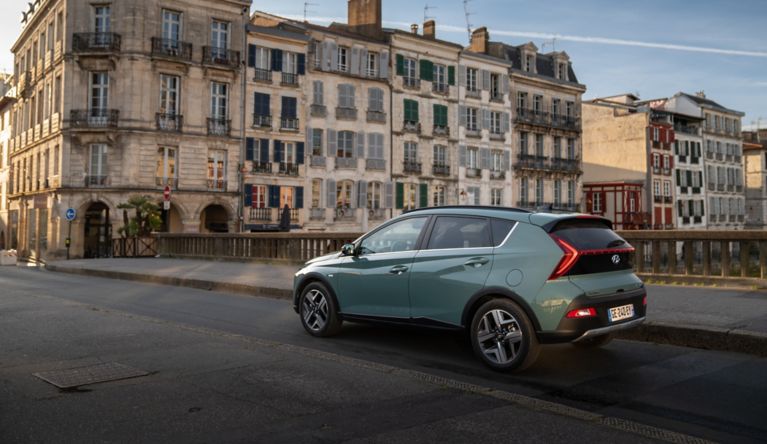
Journey to the past
While exploring Bayonne, visitors will stumble upon vestiges of the city’s rich past. Serving as a strategic stronghold since medieval times, old ramparts can still be found around the outskirts of the old town. The fortifying ramparts and forts started being constructed in the Roman times by Vauban under Louis XIV.
Just like the city was once well protected, the Hyundai BAYON also prioritises protection. This family SUV offers an extensive list of SmartSense safety features, including a handful for semi-autonomous driving. Lane Following Assist (LFA) keeps the car centred in its lane, while Forward Collision-Avoidance Assist (FCA) applies the brakes to prevent a collision. BAYON is the only car in its segment with Navigation-based Smart Cruise Control (NSCC), which adjusts the driving speed to match motorway limits.
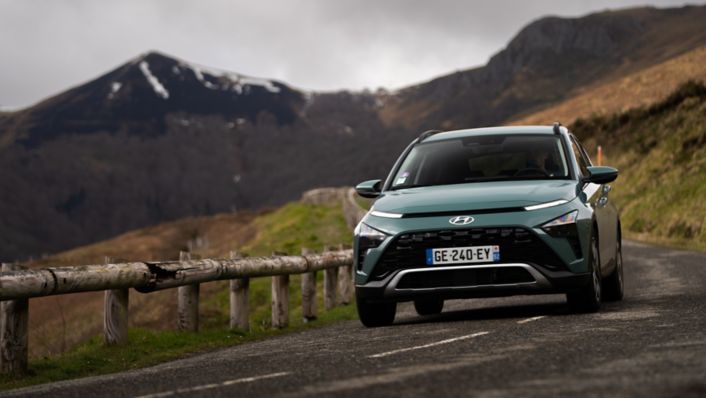
In the city centre, visitors can snap pictures of the magnificent, Gothic-style Cathédrale Sainte-Marie de Bayonne (Bayonne Cathedral). Built in the 13th and 14th centuries, it is adjoined by the Cloitre de la Cathédrale Sainte-Marie, one of the largest cloisters in France.
Instead of a Gothic style like the cathedral, BAYON encompasses Sensuous Sportiness, Hyundai’s design identity that harmonises architecture, proportion, styling, and technology. BAYON’s fresh and modern design is punctuated with triangular and arrow-shaped elements. Its unexpected proportions and strong graphic features set it apart from its SUV siblings.
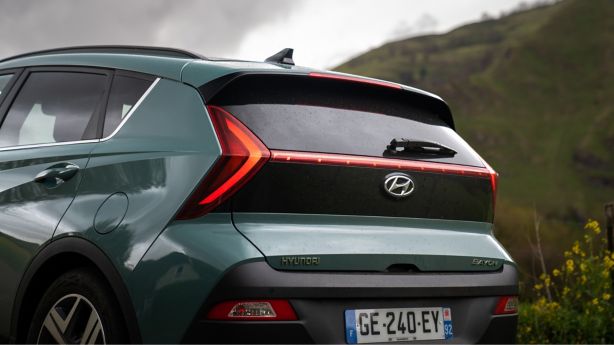
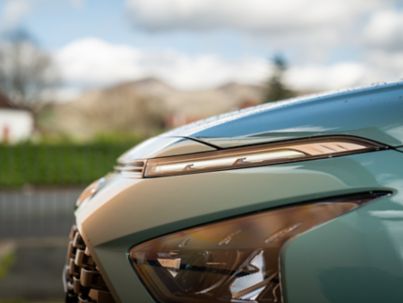
The Musée Basque (Basque Museum) in the Petit Bayonne district is also worth a visit. The museum showcases the region’s arts, crafts, history, and traditions.
Bon appétit
Some regard Bayonne as the capital of French gastronomy and Basque cuisine. The city has a long history with chocolate and is home to many of the country’s top chocolatiers. The region is also famous for its cured ham, known locally as jambon de Bayonne. Visitors to the city can book a tour to see the salting tubs and drying rooms.
A few local dishes include axoa de veau (minced veal), piperade (scrambled eggs with peppers), and omelette à la morue (salted cod omelette). For a post-dinner drink, visitors can imbibe a Basque cider while overlooking the magnificent rivers.
BAYON can help customers find the best places to stimulate their tastebuds. Thanks to connected car services with the latest version of Bluelink® technology and Hyundai LIVE Services, the updated POI (points of interest) database can show users local highlights. Users also get detailed restaurant information, such as opening hours, the type of cuisine, and whether dining is casual or formal.
From the ocean to the mountains
For a break from the city, travellers can spend some time in the local nature. Bayonne is situated near the foothills of the Pyrenees. Even though the tallest peaks of the Pyrenees Foothills are not as high as those in the actual mountain range, some summits reach up to 2,600 metres high.
Just like for a city trip, BAYON is suitable for an outdoor getaway. Versatile and practical, the model manages to combine its compact size externally with a generous 411 litres of boot space. When travelling as a family, all passengers will be grateful for spacious legroom for enhanced ride comfort.
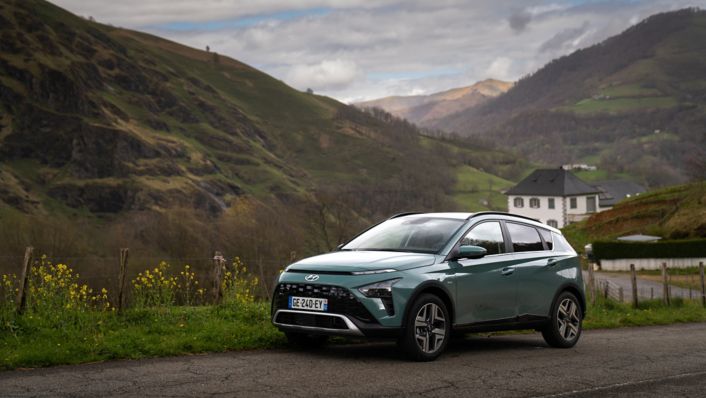
In such a mountainous environment, BAYON can really show off its dynamic driving capabilities. On demanding roads, its lightness, balance, and powerful engine will impress any driver.
Bayonne represents the heart of the French Basque Country. Offering access to the ocean and the mountains as well as food, art, and architecture dripping in local tradition, the city offers visitors a culturally enriching stay.
Disclaimer: CO2 and emissions data
- Fuel consumption combined for the Hyundai BAYON 1.0 T-GDI (100 PS) with 6MT in l/100 km: 5.6 - 5.3; CO2 emissions combined in g/km: 129 - 122 (WLTP)
- Fuel consumption combined for the Hyundai BAYON 1.0 T-GDI (100 PS) with 7DCT in l/100 km: 5.6 - 5.3; CO2 emissions combined in g/km: 128 - 122 (WLTP)
- Fuel consumption combined for the Hyundai BAYON 1.0 T-GDI 48V (100 PS) with 6iMT in l/100 km: 5.5 - 5.2; CO2 emissions combined in g/km: 125 - 118 (WLTP)
- Fuel consumption combined for the Hyundai BAYON 1.0 T-GDI 48V (100 PS) with 7DCT in l/100 km: 5.4 - 5.2; CO2 emissions combined in g/km: 124 - 118 (WLTP)
- Fuel consumption combined for the Hyundai BAYON 1.0 T-GDI 48V (120 PS) with 6iMT in l/100 km: 5.5 - 5.2; CO2 emissions combined in g/km: 125 - 118 (WLTP)
- Fuel consumption combined for the Hyundai BAYON 1.0 T-GDI 48V (120 PS) with 7DCT in l/100 km: 5.4 - 5.2; CO2 emissions combined in g/km: 124 - 118 (WLTP)
- Fuel consumption combined for the Hyundai BAYON Kappa 1.4 with 6MT in l/100 km: 6.2; CO2 emissions combined in g/km: 142 (WLTP)
- Fuel consumption combined for the Hyundai BAYON Kappa 1.4 with 6AT in l/100 km: 6.4; CO2 emissions combined in g/km: 147 (WLTP)

